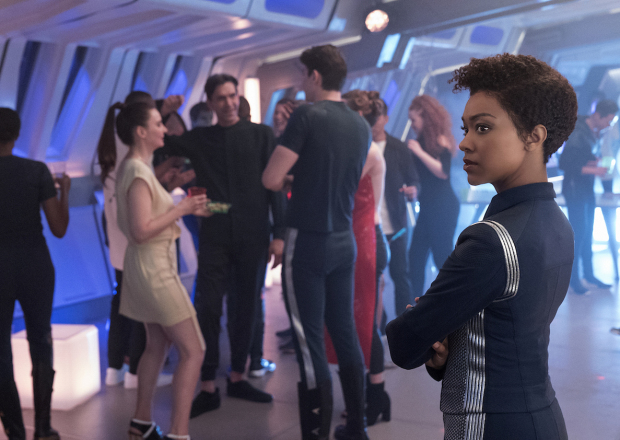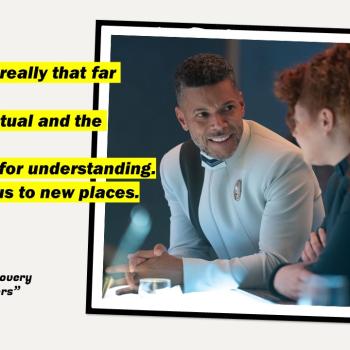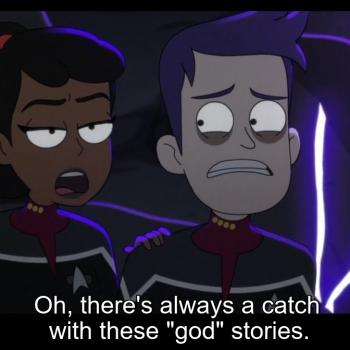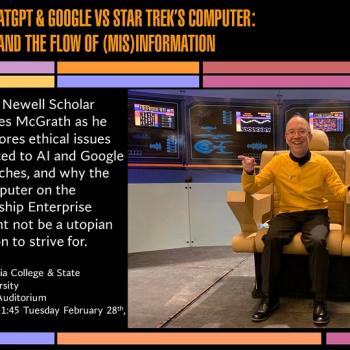Online outlets as different as Forbes and IndieWire agree that Star Trek: Discovery has taken a seriously well-worn stereotyped elements of sci fi, the time loop, and done something not only distinctive but memorable with it. For me, I think it is the relational focus that adds that something special and makes it stand out. But the episode is not without shortcomings.

The episode begins with Michael Burnham facing a great challenge for someone who had been living according to Vulcan principles: a party. Now, it seems appropriate to point out that the party seems to be of a distinctively human sort, of a kind associated with the late 20th and early 21st century. If such an event would cause unease for a Vulcan as for a human with Vulcan training, then we cannot help but notice that the show assumes that pretty much every other species in our part of the galaxy would be able to enjoy the kind of party that even many of our human contemporaries would not. Star Trek has always struggled to do justice to its emphasis on diversity beyond the level of the terrestrial and the human, when it has not consistently been able to do justice even to terrestrial human diversity in one particular era. Adding a few fake accents and foreign-sounding names was not adequate on the Original Series, and this party comes up short on the episode “Magic to Make the Sanest Man Go Mad.”
It would be easy to set this aside as merely the starting point of the episode, were it not for the fact that the episode features Harry Mudd using a 30 minute time loop to try to learn, through repeated iterations of his visit, how the Discovery’s distinctive drive works, with a view to selling it to the Klingons. And so we are taken back to that party as the starting point of the action over and over again.
That said, the party allows the episode to focus in on the relationship between Michael Burnham and Ash Tyler, which proves a harder challenge for her to navigate than figuring out how to defeat Harry Mudd.
Because of his interface with the spore drive, Stamitz has become something of a different person. Transcending time and space ought to make one a nicer person, after all. He remembers everything about each repeated loop, and so is able to help Burnham, and then Tyler, and with their help many others accept what is happening and work together to “con a con” and not only stop Mudd from killing the crew and selling the Discovery, but also reunite him with Stella, whom he had been running away from rather than genuinely lamenting the loss of.
The episode’s thoughts about love – such as that it isn’t logical – may seem trite. But set within the theme of a repeated period of time with opportunity to learn and improve (akin to Live Die Repeat AKA Edge of Tomorrow, as well as more famously Groundhog Day), the story manages to become something deeply satisfying. Phrases such as the statement that “repetition reinforces repetition, change begets change” are true, and the episode really is about learning and about courage – which we sometimes find it harder to apply to relatively smaller things than we do to bigger ones. We are sometimes more willing to risk our lives than our hearts. And so the episode is right to suggest that finding where we fit in may require stepping out of our comfortable corner.
Did you enjoy the episode as much as I did? Why or why not?
Of related interest, IO9 shared that Cliff Eidelman, who wrote the amazing score for Star Trek VI: The Undiscovered Country, also worked on music for Star Trek: Discovery, which ended up not being used. But you can listen to it on Spotify! And if you don’t know his score to Star Trek VI, give it a listen now!
















